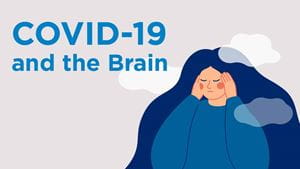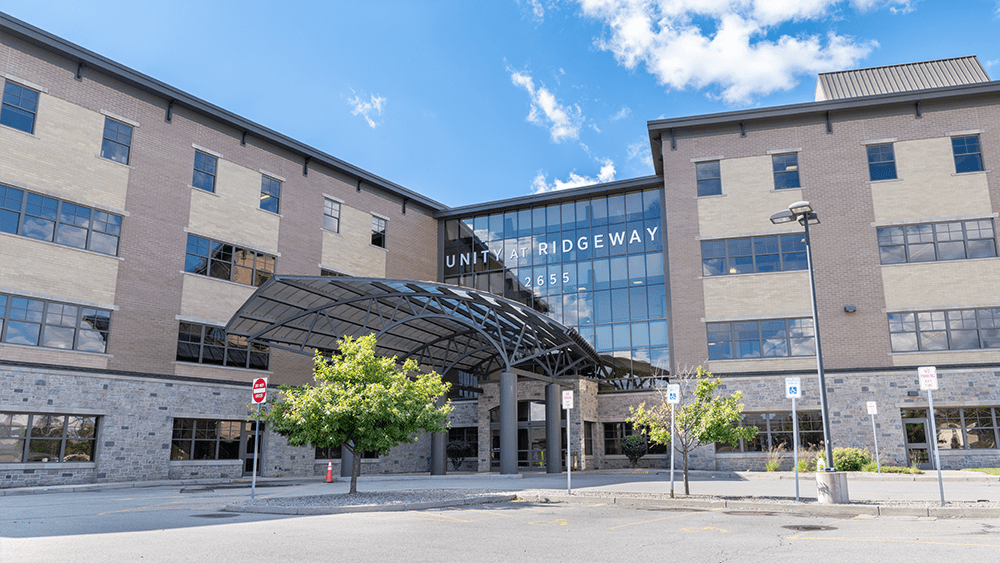
While COVID-19 is a respiratory disease, it can lead to neurological problems. The most common COVID-19 neurological symptoms are the loss of smell, taste and severe headaches, but disorders such as Alzheimer’s, stroke and Guillain-Barre Syndrome have also been linked to patients who have had COVID-19.
Our neurology experts provide insights into what they know so far about the connection between COVID-19 and serious neurological conditions.
There are three main categories of serious neurological complications that I’ve seen in patients with COVID-19: confusion, weakness and stroke.
Confusion is the most common, though the cause of the confusion does not appear to be COVID-19 infecting the brain, but rather the body’s reaction to COVID-19.
Regarding weakness, we’ve seen an increase in cases of a rare disorder called Guillain-Barre (gee-YAH-buh-RAY) Syndrome. Guillain-Barre is a syndrome in which your body’s immune system attacks your nerves. Early symptoms include weakness and tingling in your extremities first, then quickly spreading to the rest of your body.
We have also seen an increase in stroke patients. While most strokes in COVID-19 patients occur early on, we have also seen many delayed strokes. This is likely due to the hypercoagulable state (the body’s response during COVID-19 which makes the blood too thick) that seems to last a while. Some patients recover from their respiratory symptoms and then suffer a stroke. It seems likely that COVID-19 causes an immediate, increased risk of blood clots and then a similar risk of blood clots that can continue for a longer period after recovery from COVID-19. People who are at risk for a stroke before getting COVID-19 may be more likely to suffer a stroke. But we also see people who are young and healthy, with no risk for a stroke, have a stroke because of COVID-19.
It’s difficult not to be concerned about the neurological side effects of COVID-19, because it’s unpredictable. COVID-19 can cause no symptoms in anyone, young or old, or it can cause serious neurological complications that people don’t recover from. These complications can be delayed for weeks or even months after diagnosis.
On the other hand, it’s still true that more than 80 percent of infections caused by COVID-19 cause minimal-to-no symptoms. If you get COVID-19, you’re likely to have a benign course without serious symptoms.
New studies suggest COVID-19 may increase a person’s risk of developing Alzheimer’s disease. Here’s what we know: the process that causes Alzheimer’s disease begins many years before somebody receives a diagnosis. For example, we know heart disease and high blood pressure increase the risk of the Alzheimer’s disease process.
It’s too soon to know if COVID-19 starts or increases the risk of that process, but there does seem to be a higher risk of cognitive impairment over the next year if you have had COVID-19. We don’t know whether that directly connects COVID-19 to Alzheimer’s.
The big question remains. Are we going to see patients showing neurological symptoms long after getting COVID-19, similar to how some patients show prolonged cardiac and respiratory symptoms? It’s too early to tell.
We don’t know all the answers because the vaccines are new, but what we do know is that the currently approved vaccines do not contain a live virus, meaning they should be safe for patients with immune diseases.
A number of our neurological disorder patients have received the vaccine and they are doing well. The risk of getting COVID-19 is far greater than the risk of the vaccine, and we are advising our patients to get the vaccine if they can.
The pandemic has taken a terrible toll on caregivers. Social isolation, limited access to care, and uncertainty in the job market have increased the stress on caregivers dramatically. Our hearts goes out to them.
Our advice, aside from trying to take care of yourself and look for help, is to try as much as possible to work with our local organizations like the Alzheimer’s Association and Lifespan. They are wonderful organizations with many virtual, accessible resources.
